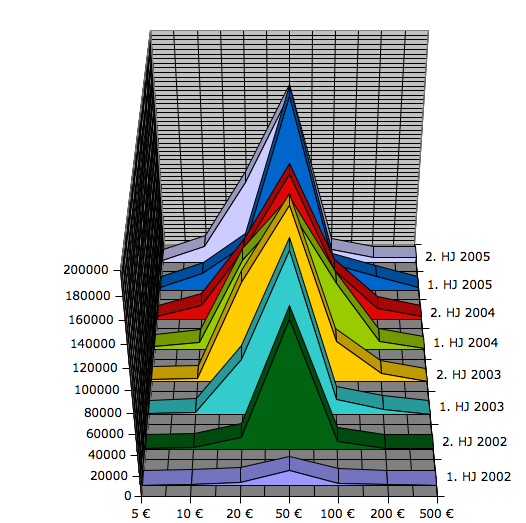… only too many jobless people. Productivity gains are eating jobs faster then new jobs are generated by economic expansion (aka. Wachstum). I have said that now for quite some time. Fortunatelly Der Spiegel has now published some rather impressive numbers. In November 2005, compared to november 2004, the gross revenue of germans manufacturing industrial production grew by 6.6%, while the number of work hours needed actually shrank by 1%. Consequently, 78.200 jobs were lost.
While certainly there is some hope to generate new jobs in non-manufacturing industries, I would not count on that. The political mantra of “everybody who wants a job should get one” is no more then a hollow lie. We need new political solutions to the productivity problem, maybe some sort of “robot tax” is a possible solution to generate money to keep the unemployed financed.
If I look at the examples I know firsthand of actual industrial production, the potential for further rationalization and corresponding productivity gains are obvious. They are often just not yet implemented because they would require some long-term investments or the technology is not yet proven enough. Both conditions will not stop the next wave of robots for long, as more and more industries get into the innovation cycle of the IT industry.
Some small and mid-sized companies take another route, because the owners feel bad about firing the last few people they know and trust. They try to expand their production capacity with the same number of people, making probably someone else unemployed in a competing company that can not innovate or invest fast enough.
So, we end up with large parts of the population with no real job. We as a society need means to cope with that. Maintaining the status quo, where unemployment is a stigma that implies somehow that the unemployed are the only ones responsible for their fate, is cruel and dangerous. There is no way around a tax financed basic income for everybody and investments to channel the economically unwanted labor force into useful directions.
The basic income has huge implications, as it will make EU-style right of domicile difficult and make a couple of 100k unemployment-administration bureaucrats jobless. Probably, the states who introduce the basic income first will grab the chance to introduce biometric IDs for all citizens, as there obviously needs to be some way to not reduce the fraud from immigrants…
Update: Andreas also found the same numbers and has some interesting remarks on the same topic (in german).



